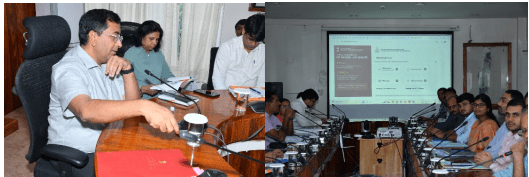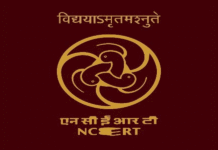A significant technological shift has come to the Public Distribution System (PDS) in the Andaman and Nicobar Islands, with the launch of SMART PDS 2.0 on August 5. The revamped system, designed to provide all ration-related services online, replaces the earlier ePDS model and introduces a citizen-centric, paperless solution aimed at increasing efficiency and transparency in food distribution.
The Chief Secretary of the Andaman and Nicobar Administration officially launched the platform in Sri Vijaya Puram, marking what is being seen as a transformative step in the delivery of essential services to residents, particularly those in rural and remote parts of the territory.
Developed by the National Informatics Centre (NIC) Headquarters in collaboration with NIC’s local unit, SMART PDS 2.0 provides a comprehensive digital interface for ration card holders. The platform, available at https://an.smartpds.nic.in, allows beneficiaries to log in using Aadhaar, ration card number, or the registered mobile number of the head of the family, with access secured through a one-time password (OTP).
Through this single portal, residents can perform a host of functions including applying for new ration cards, updating family details, adding or removing members, surrendering cards, and downloading digital copies of their ration cards. The system also allows for real-time tracking of ration distribution and entitlements, all without requiring a visit to any government office.
One of the key features of SMART PDS 2.0 is its integration of Aadhaar-based biometric authentication, which ensures that only legitimate beneficiaries receive subsidized food grains. The authentication mechanism adds a strong layer of accountability, helping to eliminate ghost beneficiaries and duplication errors that have historically plagued ration distribution systems across the country.
The launch of this platform is especially significant for island populations, where geographic constraints and limited transport infrastructure often make access to government services a challenge. With online access now possible from any location, residents in even the farthest corners of the islands can engage with PDS services without delays or physical travel.
Officials underscored the system’s emphasis on efficiency and user convenience. By eliminating the need for manual forms, physical documents, and long queues, SMART PDS 2.0 promises to save time and reduce errors. Moreover, a dedicated grievance redressal feature allows users to lodge complaints online and track their resolution status, increasing responsiveness and accountability.
The administration has made support resources available for residents navigating the new system. A toll-free helpline (1800-343-3197) and email support (noitcsca@gmail.com) have been set up to address queries and provide assistance with login, form submission, and grievance handling.
SMART PDS 2.0 reflects a broader strategic push by the Andaman and Nicobar Administration to digitize public services. In addition to improving service delivery, the platform aligns with the Union Government’s Digital India mission by offering seamless, citizen-focused experiences in place of traditional bureaucratic processes.
The paperless model also supports the administration’s environmental goals. By eliminating physical documents and automating service delivery, SMART PDS 2.0 contributes to reducing the carbon footprint of government operations, while simultaneously expanding access for underserved communities.
The launch is being hailed as a major step toward inclusive governance and digital empowerment in the islands. With SMART PDS 2.0 now operational, the focus shifts to public awareness and adoption, ensuring that the system reaches its full potential in serving the island’s population effectively.
As digital transformation continues to sweep through government services across India, the Andaman and Nicobar Islands are positioning themselves at the forefront of this change with citizen-first platforms like SMART PDS 2.0.





